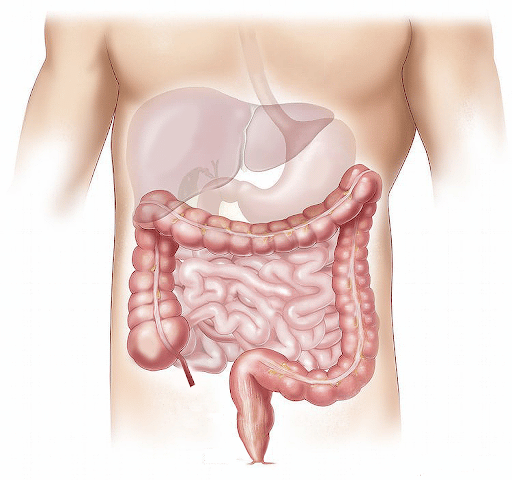Leaky gut syndrome (LGS) is another medical problem that mainstream medicine has denied and overlooked for years. But the scientific evidence for leaky gut proves otherwise. Today, a lot of research is conducted to find the answers to hot questions about leaky gut syndrome: is it real? Is it a disease or a symptom? Can it cause chronic diseases? Can it be cured? These are some of the burning questions we’ll be tackling today.
I’m not claiming that a leaky gut is the culprit behind every gut-related issue. I’m not even saying that it is the most serious issue out there. But everyone who suffers from gut-related symptoms should be aware of leaky gut and its triggers.
Here are 6 things you should know about leaky gut:
- Let’s make it clear: leaky gut is real. But, the good news is that it is not a disease. It is a symptom that can indicate the presence of other chronic diseases.
- Leaky gut is exactly what it sounds like. A healthy digestive system protects the gut-blood barrier and keeps harmful substances out of the circulatory system. Leaky gut or increased intestinal permeability happens when this protective barrier gets damaged, and as a result, bacteria and toxins are able to pass into the bloodstream.
- You don’t want toxins and bacteria in your bloodstream. Once the intestinal permeability increases and unwanted substances reach the ‘other side’, it can trigger inflammation and even immune response. Chronic inflammation can become a root cause of various health problems.
- LGS is definitely linked with some medical conditions. It is no surprise that damage in intestinal walls can support the development of gastrointestinal conditions, like celiac disease, Crohn’s disease and IBS.
- LGS might be linked with some other serious health issues. Leaky gut might be associated with other medical conditions and autoimmune diseases, like chronic fatigue syndrome, food sensitivities, allergies, mood swings, multiple sclerosis, thyroid problems, obesity, mental illness, etc.
- Don’t delay getting tested. If you suffer from symptoms like bloating, digestive and skin issues, fatigue and food sensitivities, it might be time to get tested!
Human intestines naturally have some level of permeability which allows the healthy exchange of some substances and nutrients. The problem arises when the protective barrier gets damaged and as a result, large and harmful substances get a pass where they aren’t welcome. Knowing this question any logical person will ask is the following: what causes permeability to increase? Can I avoid that?

Well, here are 9 triggers that support increased intestinal permeability and lead to a leaky gut:
1. Food sensitivities & nutrient deficiencies
Food is a big part of gut health. So, it is no surprise that many of the triggers of leaky gut are directly related to food. Food sensitivities and leaky gut are in a vicious cycle of reinforcing one another. Let me explain why: eating foods that don’t agree with your body can cause an inflammatory response and lead to symptoms (bloating, fatigue, digestive problems) that are related to leaky gut. Leaky gut on the other hand reinforces allergies and metabolic problems. In addition to food sensitivities, you have to be aware of nutrient deficiencies which can also contribute to increased intestinal permeability. Specifically, you should be aware of the level of vitamin A, D and zinc.
2. Antibiotics and NSAIDs (non-steroidal anti-inflammatory drugs)
There is no doubt that antibiotics can save our lives. They are a bit part of modern medicine and we probably can’t imagine ourselves without them. But it is not a secret that continued use of antibiotics can be devastating for your entire organism, especially for your gut health. Antibiotics eradicate not only the bad bacteria, but also wipe out the good ones that regulate digestive health. Changes in the bacterial composition could increase intestinal permeability. So, choosing appropriate antibiotics and supporting gut recovery after a course of antibiotics is crucial. Long term use of NSAIDs like ibuprofen can also increase intestinal permeability and cause leaky gut.
3. Excessive sugar intake
Sugar is evil like no other. With its addictive and sweet nature, it attracts the human mind and wrecks havoc on our bodies. Awareness about sugar’s inflammatory qualities is slowly increasing, however, sugar consumption is still at an all-time high. Sugar can alter the bacterial composition in the gut and harm the protective barrier in the intestines. Thus, it supports leaky gut and inflammatory responses.
4. Gluten
Gluten can also contribute to leaky gut. People with celiac disease and IBS often suffer from leaky gut-related symptoms. Gluten can make these symptoms more severe. Thus, watching your diet and eliminating foods that increase gut permeability are crucial.
5. Yeast overgrowth
By now, you probably understand that anything that causes a disruption to the digestive system and alters the balance of a healthy gut can become a major problem for your gut health. Overgrowth of certain yeast types can physically damage the intestinal walls and allow unwanted substances to pass to the bloodstream.
6. Excessive alcohol
Alcohol consumption triggers leaky gut in 2 ways. Firstly, it decreases the level of substance that regulates inflammation and if alcohol intake continues, ongoing inflammation can support the leaky gut syndrome. Additionally, alcohol negatively affects digestion and can cause nutritional deficiencies which further affect the absorption of various nutrients and can contribute to symptoms of leaky gut.
7. Pesticides
Experiments have been conducted to study the effect of low-level, continued exposure to pesticides on mice. The analysis of the colon showed that due to pesticides intestinal walls were loosened and the barrier was no longer effective. Basically, the study confirmed that pesticides triggered leaky gut.
8. Chronic stress
Chronic stress causes a number of digestive disorders. Leaky gut is one of them. Turns out couples that have strained marriages have statistically higher gut permeability, which is induced by continued stress. Also, stress and depression can trigger unhealthy food choices, which is another trigger for leaky gut.
9. Gut health
The balance between good and bad bacteria determines how well the intestinal wall filters substances and acts as a barrier. So, overall maintenance of gut health is crucial.
Is it possible to get tested for leaky gut syndrome? Absolutely. A functional medicine doctor can run a series of biomarkers to help identify this issue. Once LGS is confirmed, triggers need to be identified and removed. Repairing the damaged intestinal cells is a necessary next step in dealing with leaky gut.
To discuss this and related gut problems, I invite you to join the Healthy Gut Institute here. It is an effective 6-week program that will help you health your gut in a comprehensive and holistic way. If you’ve been struggling with digestive issues such as irritable bowel syndrome (IBS), inflammatory bowel disease (IBD), small intestinal bacterial overgrowth (SIBO), Crohn’s disease, colitis, Leaky Gut, and more then this program may be for you.
Explore the Healthy Gut Institute and find out if it is the right program for you.
To your symptom-free life,
Dr. John Dempster

